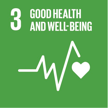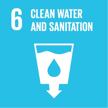About this project
Improved water supply and sanitation, and better management of water resources, can boost countries’ economic growth and can contribute greatly to poverty reduction. Climate change, increasing water scarcity, population growth, demographic changes and urbanization already pose challenges for water supply system. Treating of wastewater to recover valuable resources such as water, nutrients, and energy, is seen as a sustainable solution to water scarcity issues worldwide but has received limited attention in Africa.
Good hand hygiene practice is the cheapest and easiest way of disease prevention, however, majority of the Ghanaian population do not practice it especially in the schools where children spend 80% of their time there. Failure to practice good hand hygiene has led to the outbreak and spread of diseases in Ghana which mostly affect children. Lack of access to potable water and hygiene facilities are the major cause of poor hygiene practices among the school chidden and the society at large. This prevailing situation sometimes deters the girl child from going to school during their menstrual periods.
In order to ensure good hand hygiene practices, this project will employ the use of rainwater harvest systems to collect and store water for hand hygiene activities in the school. Promoting hand hygiene practices (handwashing) will lead to the generation of wastewater which may adversely affect the environment (e.g. eutrophication in water bodies) when discharged untreated into the environment. Therefore, the wastewater generated will be treated and reused for irrigation (horticulture) purposes, hence contributing significantly to the circular economy and environmental protection.
Goals and Objectives
The goal of this project is to promote hand hygiene while treating the generated wastewater for reuse (irrigation and /or toilet flushing) purposes. The targeted group for this project is educational institutions, specifically school children. This is because children act as agent of change in their household and communities.
Our objectives are to:
(i) Create awareness and form WASH groups in various schools
(ii) Construct rainwater harvesting system and wastewater treatment system
(iii) Commission and monitor the performance of the treatment system for improvements.
Expected result
This project seeks to;
(i) Construct rainwater harvest systems to collect and store water for hand hygiene activities in the schools.
(ii) Promote hand hygiene practices by providing handwashing facility and WASH education is schools
(iii) Treat wastewater generated from handwashing facility to prevent adverse effect to the environment (e.g. eutrophication in water bodies) when discharged untreated into the environment.
(iv) Recycle wastewater to be reused for irrigation(horticulture) purposes, hence contributing significantly to the circular economy and environmental protection.
Sustainable Development Goals
About me / organisation
1. Michael Nyame Acquah; 2. Suzzy Smith Mensah; 3. Jonathan Opoku Oti
Organisation: The WASH Youth Network, Ghana.
The WASH Youth network is a youth club in Ghana which provides voluntary services in the Water and Sanitation sector to public in the country. The club was established in 2016 and is made up of a team of talented and experienced students who work towards the betterment and the improvement of livelihoods of the populace.
Mission
To contribute to the development of Africa and the world by promoting Water, Sanitation and Hygiene (WASH) practices among all persons in rural and urban residents through educational outreach programs and the provision of WASH services.
Vision
The WASH club aspire to be agent of change in the Water, Sanitation and Hygiene sector across the globe.
1. Michael has a (MSc) in Water Supply and Environmental Sanitation from the Kwame Nkrumah University of Science and Technology, Ghana. He obtained his BSc (Hons) degree in Water and Sanitation from University of Cape Coast, Ghana. His research interests include human excreta management, water and wastewater treatment. Through extensive exposure to research and voluntary works, Michael has developed expertise in the WASH sector. He mostly enjoys giving a helping hand to the vulnerable and needy in the community.
2. Suzzy is currently in her third year pursuing BSc (Hons) degree in Water and Sanitation from University of Cape Coast, Ghana. She has experience in volunteering and advocating for gender equity with regards to Water, Sanitation and Hygiene. Motivated team player who excels at collaborating with other team members to solve issues, devise creative solutions and ensure smooth sailing
3. Jonathan holds a Master of Science degree in Water Engineering from the Pan African University Institute of Water and Energy Sciences. He is passionate about giving back to the community. He is a freelance WASH Consultant and has work in the water, sanitation and hygiene sector for more than three years.
Website

